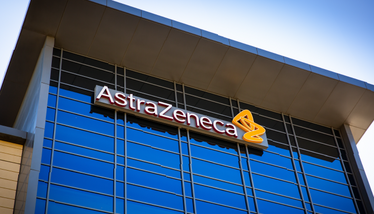This Week’s Biopharma News: AstraZeneca Cans Phase III Trial
Our latest news roundup reports on Amgen’s $900 million investment, EMA’s re-examination of donanemab, philanthropy at Sanofi, and more
Stephanie Vine | | 3 min read | News

Credit: Adobestock.com
The big business announcements:
AstraZeneca axes phase III prostate cancer trial
AstraZeneca is discontinuing a phase III trial of Truqap (capivasertib) in combination with docetaxel and androgen-deprivation therapy (ADT) in patients with metastatic castration-resistant prostate cancer (mCRPC). An Independent Data Monitoring Committee concluded that the combination was unlikely to achieve the trial’s dual primary endpoints of radiographic progression-free survival and overall survival compared to the control arm of docetaxel and ADT with placebo.
The safety profile of Truqap remained consistent with prior studies and AstraZeneca says it will collaborate with trial investigators for appropriate patient follow up.
Amgen’s $900 million US investment
Following on from US investment announcements from Roche and others, Amgen has now come forward with plans for a $900 million investment to expand manufacturing capabilities in New Albany, Ohio. The project will support the production of biologic drug substances and is expected to create approximately 350 new full-time jobs. According to the company, the expansion is intended to enhance Amgen's ability to meet growing demand across its biologics portfolio and pipeline. The facility has reportedly been designed with a focus on efficiency and environmental sustainability, and is scheduled for completion in 2026. Robert A. Bradway, chairman and CEO at Amgen, said: “Ohio offers a supportive business climate, skilled workforce, and strategic location, making it an ideal choice for this next phase of our investment.”
16 new medicines in Europe & Lilly re-examination request
EMA has recommended 16 new medicines for approval at its April 2025 meeting. Notable approvals include Alyftrek (deutivacaftor/tezacaftor/vanzacaftor) for cystic fibrosis, Duvyzat (givinostat) for Duchenne muscular dystrophy (conditional approval), Tepezza (teprotumumab) for moderate to severe Thyroid Eye Disease, as well as several biosimilars.
Eli Lilly has also requested that the EMA re-examine its negative opinion issued for donanemab in March 2025. A Lilly press statement previously said, “Donanemab has been reviewed and approved in the United States, Japan, China, and other markets. Lilly remains confident in the safety and effectiveness of donanemab and the value it can bring to patients with early symptomatic Alzheimer’s disease. We hope that through the re-examination process, we will be able to continue our discussions with the agency to bring donanemab to the millions of people across Europe suffering from this relentless, fatal disease.”
Sanofi and Sobi philanthropy
Sanofi’s Foundation S and Sobi have renewed their partnership with the World Federation of Hemophilia (WFH) and WFH USA to continue their contributions to humanitarian aid programs. Under the terms of the new agreement, Sanofi and Sobi will provide up to 100 million international units of factor therapy products annually, alongside financial support, for a period of up to five years. This extension follows a decade of collaboration during which the two companies donated a cumulative one billion international units of clotting factor treatment. The renewed agreement aims to maintain a stable supply of treatment products, support the establishment of care infrastructure, and enhance local capacity to diagnose and manage bleeding disorders in countries where access remains limited.
Mark Skinner, Board Member of WFH, USA said: “The WFH Humanitarian Aid program is an extraordinary example of collaboration. The life-changing impact of this program is a testament to what can be achieved by working together with our industry partners.”
Cell and exosome partnership with RoosterBIo and Thermo Fisher Scientific
RoosterBio has announced a collaboration with Thermo Fisher Scientific to advance the development and manufacturing of cell and exosome therapies for degenerative diseases. By combining RoosterBio’s portfolio of human mesenchymal stem/stromal cell (hMSC) products, engineered media, and bioprocess development expertise with Thermo Fisher’s GMP manufacturing capabilities, the partnership seeks to provide biopharmaceutical companies with a new development solution. The collaboration will enable streamlined access to clinical trial material production, utilizing RoosterBio’s processes and analytics alongside Thermo Fisher’s capabilities in upstream hMSC expansion, downstream purification of MSCs and MSC-derived exosomes, and drug product manufacturing.
Leadership from both companies emphasized the strategic fit between RoosterBio’s technologies and Thermo Fisher’s manufacturing infrastructure. The partnership is positioned to address the demand for flexible, scalable, and reliable manufacturing pathways for engineered cell and exosome therapies.

Making great scientific magazines isn’t just about delivering knowledge and high quality content; it’s also about packaging these in the right words to ensure that someone is truly inspired by a topic. My passion is ensuring that our authors’ expertise is presented as a seamless and enjoyable reading experience, whether in print, in digital or on social media. I’ve spent fourteen years writing and editing features for scientific and manufacturing publications, and in making this content engaging and accessible without sacrificing its scientific integrity. There is nothing better than a magazine with great content that feels great to read.



















